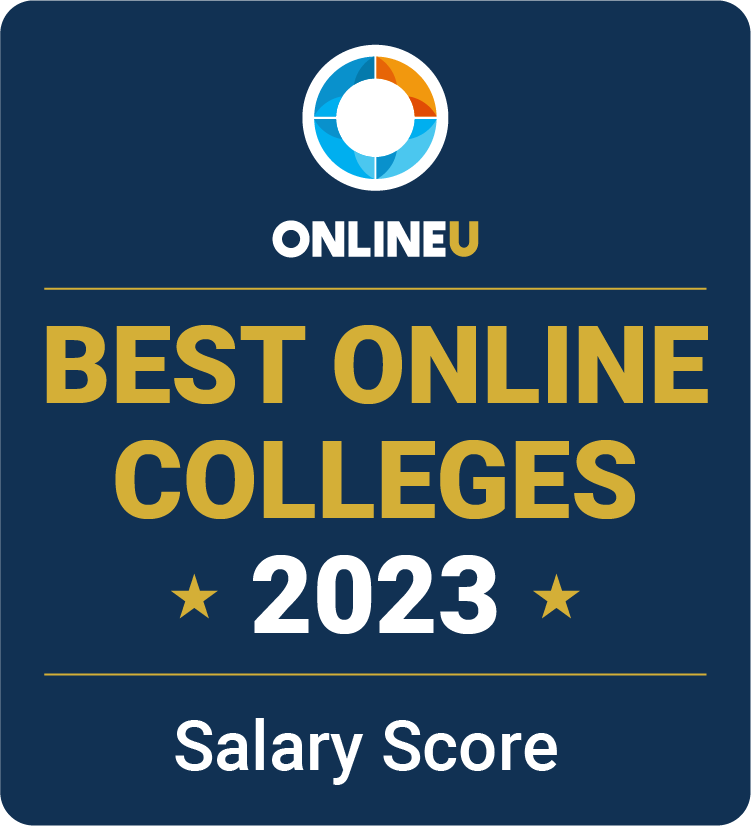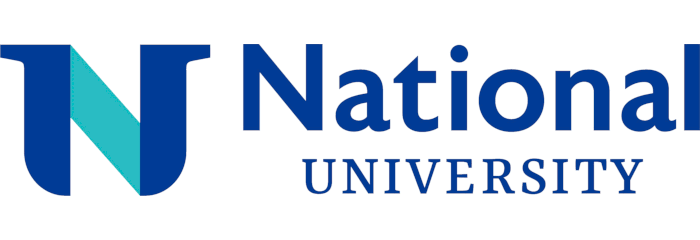2023 Best Online Early Childhood Education Degrees
ON THIS PAGE
Courses Concentration Careers Worth It?An online bachelor's in early childhood education teaches students strategies for instructing and educating children from infancy to fifth grade. Many parents or guardians work time-consuming jobs while leaving their young children in the care of educators and caregivers. This creates tremendous job opportunities for those who enjoy working with these age groups. Early childhood education students learn how to create curriculums, develop inclusive teaching practices, and effectively interact with their future students. Degrees in child development or elementary education may lead students to similar career opportunities as teachers and social service workers.
View our methodology for more details about our list or learn more about OnlineU.
Learn more about how we make money. ">ADVERTISEMENT
Online Early Childhood Education Bachelor's Degrees You May Be Interested In

Arizona State University
Annual Tuition: $19,398 - $29,428
2 Programs (view all)

Grand Canyon University
Annual Tuition: $17,800
2 Programs (view all)

Liberty University
Annual Tuition: $11,700
2 Programs (view all)
2023 Best Online Early Childhood Education Degrees
| Rank | School | Salary Score | Median Starting Salary |
|---|---|---|---|
| Wilmington University | $41,661 | ||
| St. Petersburg College | 86 | $41,290 | |
| St. Catherine University | 82 | $40,477 | |
| Arizona State University | 82 | $40,436 | |
| National University | 77 | $39,572 | |
| Northern Arizona University | 72 | $38,858 | |
| University of Wisconsin - Whitewater | 71 | $38,711 | |
| Florida International University | 71 | $38,688 | |
| Indiana Wesleyan University Online | 70 | $38,639 | |
| Saint Leo University Online | 70 | $38,620 |
2023 Online Colleges Offering Bachelor's Degrees
Ranking Details
#1 Wilmington University
- Salary Score: 88
- Median Starting Salary: $41,661
- Locations: New Castle (DE)
- Accreditation: MSCHE
Wilmington University (WilmU) is a private university offering an online Bachelor of Science in Early Childhood Education (Preschool) requiring 121 credit hours. If studying full time, students can complete this program in four years. All students are accepted into WilmU, with 45% earning a degree.
At WilmU, students use the Canvas learning management system (LMS) to access their courses, which are taught completely online. As a whole, the curriculum for this program is designed for teaching roles that do not require a license, with a focus on subjects surrounding theory, psychology, and child development. Students may also choose from concentrations devoted to specific age groups. Required courses include Instructional Technology, Health and Physical Education, and Applied Behavior Analysis and Classroom Culture. Graduates may earn career opportunities as non-licensed educators.
#2 St. Petersburg College
- Salary Score: 86
- Median Starting Salary: $41,290
- Locations: Clearwater (FL)
- Accreditation: SACS COC
St. Petersburg College (SPC) is a public college that offers an online Bachelor of Science in Educational Studies and Community Leadership - Early Childhood Education requiring the completion of 120 credit hours. Typically, students graduate within four years while studying full time.
All online courses at SPC are taken through the Brightspace LMS. This allows students to study entirely online, with some courses delivered asynchronously. This online degree focuses on developing the skills to educate children from infancy through four years old. It's best for students who aim to pursue a non-school educational career. Among the major requirements are the following classes: Sociology of Education, Comparative and International Education, and Education and Public Policy in the United States. Additionally, students must complete an internship with 240 contact hours. Upon graduation, students are prepared to become after-school educators and childcare facility workers.
#3 St. Catherine University
- Salary Score: 82
- Median Starting Salary: $40,477
- Locations: Saint Paul (MN)
- Accreditation: HLC
St. Catherine University (St. Kate's) is a private, Catholic university that offers a Bachelor of Science/Arts in Early Childhood Education with Licensure. This online degree requires 78 major credits, which can generally be completed in two to four years. Ultimately, this depends on transferable credits and a student's study schedule.
Brightspace is the main LMS used by St. Kate's students. They can complete courses 100% online, with most courses being delivered asynchronously. This degree is all about developing the professional skills needed for students to earn a teaching license. The majority of required credits are devoted to the core curriculum, including classes such as Early Childhood Education Accreditation and Standards, Effective Practice in Early Childhood Education, and Infant and Toddler Methods and Materials. A 14-week teaching experience is also required, which students can complete at schools near their community along with one-week intensives each summer on campus. Jobs for graduates may be available as elementary school teachers.
#4 Arizona State University
- Salary Score: 82
- Median Starting Salary: $40,436
- Locations: Tempe (AZ) (and 4 others)
- Accreditation: HLC
Arizona State University (ASU) is a public institution with a Bachelor of Applied Science in Early Childhood Studies requiring 120 credit hours. The average completion time for this degree is around four years for full-time students. ASU also offers a Bachelor of Arts in Education in Educational Studies – Early Childhood. Of all the students that apply to ASU, 73% are accepted, and 52% of enrolled students graduate.
ASU students use Canvas as their LMS, where courses are delivered fully online and on a flexible timeline. The core curriculum for this program teaches students about childhood development and includes courses designed for professionals with existing children's education experience. Some required classes include Building Leadership Skills; Cognition and General Knowledge of Science, Math, Logic, and Reasoning; and Intentional Teaching. Students must also complete an approved work or volunteer placement. Career opportunities for either degree include child care worker, preschool director, and preschool teacher.
#5 National University
- Salary Score: 77
- Median Starting Salary: $39,572
- Locations: La Jolla (CA)
- Accreditation: WSCUC
National University (NU) is a private university that hosts an online Bachelor of Arts in Early Childhood Development. In order to receive this degree, students must complete 180 quarter units, which is typically done within four years. NU also offers a Bachelor of Arts in Early Childhood Education, which features both academic skills along with social and emotional development in young children. NU's acceptance rate is 89%, with 34% of students earning a degree.
Online students at NU use Brightspace to complete their coursework, which is delivered remotely in a blended asynchronous and synchronous format. The curriculum for the childhood development degree prepares students to become professional teachers through various education methodologies, strategies, and essential knowledge. There are a number of required courses, such as The Growing Child: Zero to 8, Early Cognition, and Play as Pedagogy. Graduates may find employment as preschool teachers and childcare workers.
What Degree Is Best for Early Childhood Education?
Most early childhood education teachers at public schools — which usually pay better than private schools — need a bachelor's degree to enter the field. It may be possible to begin a career in a parochial school or daycare center with an associate degree, but a bachelor's degree improves your chance of employment and earning a higher salary. No matter where you want to work, it's possible to secure a job with an online bachelor's degree as long as it's accredited and you have student teaching experience.
If you want to teach, it may be helpful to enroll in a degree program that guides students to become certified teachers in the state where they want to teach. Completing a licensure degree program allows graduates to take a licensure exam, which determines eligibility for teaching in preschools, federal Head Start programs, and elementary schools through third grade. On the other hand, you may prefer an administrative or leadership role. In that case, you can choose from any non-licensure degree.
Completing a licensure degree program allows graduates to take a licensure exam, which determines eligibility for teaching in preschools, federal Head Start programs, and elementary schools through third grade.
Accreditation for Online Early Childhood Education Degrees
Colleges earn accreditation by meeting standards established by independent, authoritative agencies. These agencies evaluate schools to verify the quality of their curricula, the faculty’s qualifications, and the availability of research programs and other student resources. The U.S. Department of Education recognizes national accrediting bodies. Meanwhile, the Council for Higher Education Accreditation authorizes the more prestigious regional accrediting agencies, which have higher evaluation standards.
When researching early childhood education programs online, verify the school’s precise accreditation details, as required by the relevant regulation boards in your state. You'll likely need to graduate from an accredited program to gain an early childhood license. It also helps with transferring credits to other schools and makes it possible to apply for federal financial aid.
You'll likely need to graduate from an accredited program to gain an early childhood license.
While national and regional accreditation applies to colleges, individual programs can also apply for programmatic accreditation. Specifically, the National Association for the Education of Young Children sets the national standard for higher education programs in early childhood education. They work with the Council for the Accreditation of Educator Preparation to accredit bachelor's and master's degree programs. Use the council's Nationally Recognized Program Search tool to determine the accreditation status of specific programs.
How to Choose an Online Early Education Degree Program
Deciding where to apply is ultimately up to you, but we've included some questions to ask yourself as you research degree options:
- What will it cost? Annual tuition ranges from about $7,700 to $36,900 at the schools ranked on our list of the Best Online Early Childhood Education Bachelor's Degrees. In general, the cost of an online degree is lower than the cost of an on-campus degree, and online students can also use financial aid to help reduce costs.
- Is it accredited? An institution's accreditation status is important, but a program's accreditation may also be crucial for licensure in your preferred state.
- Do I want to study online? Distance learning provides the convenience of asynchronous coursework, and it doesn't require uprooting your life or choosing a nearby school. However, some students learn better during in-person courses, where they can ask questions, form study groups, and take advantage of networking opportunities.
- Do I want a specialized degree track? Some of the best online colleges for early childhood education offer concentrations to help you tailor your studies. For example, you could focus your studies on special education in early childhood, or you may prefer a general major with a minor in administration.
- What do alumni think of their experience? A potentially helpful exercise is to read student reviews of a prospective school. Program graduates may describe some of the challenges they faced with coursework, the effectiveness of administrative support for online students, and even their ability to secure a job after graduation.
Common Online Courses in Early Childhood Education
Early childhood education programs should ensure that graduates understand normal and exceptional childhood development, effective teaching strategies for young learners, and how to mitigate behavioral problems in the classroom. Although B.S. and B.A. programs differ in emphasis, many online child education degrees feature similar core courses, including the following:
- Child Development: This course investigates how children's brains and bodies grow during their early years. Topics may include childhood learning, thought processes, emotional range, and reactions to challenges. The environment’s role in a child’s development — including familial and cultural expectations — is a key theme when discussing these issues.
- Early Childhood Learning Environment: Enrollees learn to create an environment where children feel comfortable, encouraging them to reach their learning potential. Professors may discuss sensory stimuli, movement and play, and unconscious bias in the classroom.
- Early Literacy and Reading: Students learn established methods regarding how to teach new readers. The course may cover children's literature and how to choose culturally sensitive material for different reading levels. The discussion topics may also include language acquisition, literacy development, and age-appropriate instructional methods.
- Educational Psychology: This course provides a foundation for understanding how people learn new information and skills. The latest research on neuromotor development, social influences, and the complexities of human motivation are just some of the course’s potential topics. Typically, the history of educational psychology will be laid out, from behaviorism to constructionism.
- Standards-Based Curriculum, Instruction, and Assessment: This class covers some of the tools teachers use in curriculum development. Enrollees learn both state and district standards to understand how lessons fit into broader curricula. During this process, each student creates multiple lesson plans, which are distributed to classmates for constructive feedback.
- Topics in Special Education: Future educators should understand the range of cognitive and physical impairments they might encounter, even if they're not seeking a special education credential. Lessons will likely delve into the autism spectrum, including ideas about how this concept evolved. Students learn how to create and teach an individualized education plan. They also devise strategies for partnering with special education aides.
Early Childhood Education Specializations
When pursuing an early childhood education degree, you may either choose a general course of study or a program that offers a concentration. A program with a concentration may help prepare you for applying to jobs with specialized criteria. A few early childhood specializations are listed below for your consideration:
- Administration: Schools, daycares, and other early childhood education spaces need administrators and managers to function. Since it's useful for these employees to understand children's learning needs, courses in this specialty cover team leadership, project management, safety/wellness requirements, and family/community relations. Classes on budgeting may also be cross-listed with other departments, like accounting or finance.
- Applied behavior analysis: This scientific subdiscipline within special education focuses on modifying children's behavioral problems, including those with cognitive and autism spectrum disorders. Graduates in this specialization use positive reinforcement to encourage constructive behaviors. Some programs even prepare alumni for the Board Certified Assistant Behavior Analyst exam.
- Educational technology: A growing body of research stresses technology's impact on child development. Education technology specialists utilize these insights to foster literacy, numeracy, and constructive behavior in the classroom or care center. The coursework may include lessons on educational media, the Internet of Things, digital assessment tools, and online learning.
- Infant and toddler education: It takes special knowledge and dedication to care for and teach the youngest learners. Students focus on developmental psychology and physiology, learning how to instill knowledge and encourage positive behavior among this population. Infant and toddler specialists also gain insight about the importance of closely partnering with parents and guardians from various backgrounds, which develops soft skills like patience and diplomacy.
- Special education: This is one of the most common specializations in early childhood education. Special education courses describe a wide range of physical, cognitive, and behavioral issues that educators may encounter alongside strategies for teaching students with special needs. A major takeaway involves learning how to assess individual students for placement in inclusive settings, like special-needs classrooms.
Careers in Early Childhood Education
The term “early childhood education” is broad, encompassing a variety of careers and education levels. The connecting thread is a desire to help children learn during their most impressionable years, as they discover who they are and how they relate to others. The following list represents some career options for graduates of early childhood education programs, including salary and job outlook data from the Bureau of Labor Statistics (BLS):
Childcare worker
Median Annual Salary: $25,460
Job Growth Rate: 8%
Caregivers work with young children in public and private day care settings. Their responsibilities include providing and supervising safe places away from home for children to play, learn, and socialize. A childcare worker earns a median annual salary of $25,460. Those considering this position can expect an 8% job growth through the end of the decade.
Kindergarten and elementary school teachers
Median Annual Salary: $60,660
Job Growth Rate: 7%
Educators at these levels are considered early childhood teachers. They're responsible for helping students begin reading, writing, developing basic math skills, and understanding the fundamentals of modern science. With a median wage of $60,660 per year, kindergarten and elementary school teachers are the highest paid professionals in the early childhood education field. The number of licensed elementary teachers is projected to grow by 7% through 2030.
Preschool and childcare center director
Median Annual Salary: $49,160
Job Growth Rate: 11%
High-level administrators are not only found in schools but also private childcare and education settings. They manage their organization's employees, draw up budgets, stay updated on state requirements concerning safety and certification, and converse with children's parents/guardians to solve any issues that may arise. The median annual salary for this position is $49,160. Through 2030, occupations in this field will grow by 11%.
Preschool teacher
Median salary: $31,930
Job Growth Rate: 18%
Preschool teachers provide developmentally appropriate activities and exercises to help young children learn. As with kindergarten and elementary school teachers, these professionals must obtain a state teaching license and degree. The median salary for this position is $31,930 a year, but this reflects a large percentage of preschool teachers who hold an associate degree rather than a bachelor's degree. The BLS projects a growth of 18% in these roles over the next ten years.
Teacher assistant
Median salary: $28,900
Job Growth Rate: 9%
Many begin their career in early childhood education as teaching assistants. These professionals work under the guidance of teachers to support individual students or small groups who need extra encouragement, tutoring, or supervision. Teaching assistants without a bachelor's degree can gain valuable classroom experience before committing to a four-year degree and teacher certification. The median annual wage for a teaching assistant is $28,900, and the field will likely grow by 9% from 2020 to 2030.
Certification & Licensure for Early Childhood Education
Prospective early childhood educators and caregivers must abide by their state’s legal requirements before they seek employment. Some states simply require a high school diploma and experience, while others require a bachelor’s degree in a relevant subject.
For example, most U.S. states require that public preschool instructors pass a national examination and procure continuing education units. Instructors may even be required to complete a teacher training program, but this can usually be skipped by those who majored in early childhood education development. Therefore, prospective preschool educators should verify their individual state requirements before enrolling in a degree or certificate program.
Professional certification for early childhood educators and caregivers may be beneficial for those wishing to advance in their career, but it may even be required for employment in some settings. Earning a recognized credential informs families and employers of one’s competence, knowledge, and dedication.
Professional certification for early childhood educators and caregivers may be beneficial for those wishing to advance in their career, but it may even be required for employment in some settings.
The Council for Professional Recognition offers one of the most popular forms of professional certification for this field: the Child Development Associate Credential (CDA). Students earn this designation by completing a certain number of hours of professional education and work experience. The CDA is available for professionals working in the following settings:
- Family childcare
- Home visits
- Preschool
- Infant and toddler environments
Another professional agency that issues certifications for early childhood educators is the National Early Childhood Program Accreditation. This organization issues the Certified Childcare Professional credential to those with a high school diploma and relevant work experience who have enrolled in continuing education courses.
Is an Online Early Childhood Education Degree Worth It?
Everyone has different circumstances and responsibilities, so this question can only be answered on a case-by-case basis. For some, earning a bachelor's degree in early childhood education would not be worth the time and expense because earnings tend to be low. Earnings are low, and job growth is slower than average. However, if you're passionate about helping children learn during their most impressionable years, then this degree may be a suitable fit.
Potential Benefits
- Job growth is steady for early childhood education teachers. Most occupations in this field are projected to grow faster than the U.S. average of 8% between 2020-2030. Preschool teachers enjoy an especially good outlook, with 18% growth expected by the end of the decade.
- Academic research suggests that early childhood teachers are relatively satisfied with their jobs, despite the low pay and high stress. This data holds true despite the low pay and high stress involved. Teachers’ motivation to work with children may help to offset the negative aspects.
Potential Drawbacks
- Most early childhood teachers and administrators earn relatively low wages. Despite the importance of their work, educators working with young children are generally not well compensated, especially compared to other professions or even teachers at higher grade levels. For administrators, it takes years of experience to reach the level of director and enjoy a median annual salary above the nationwide median of $41,950.
- Some academic studies point to serious levels of stress and depression among early childhood educators and administrators. Although the numbers vary, research across different early childcare settings has found relatively high levels of depression and work-related stress, exacerbated by low pay and lack of bureaucratic support.
The benefits of getting an early childhood education degree online may include lower total costs and the flexibility to study according to your schedule. On the other hand, you may not network as easily in a virtual environment. This hurdle could be offset by the contacts you make in the field experience portion of your program, but it will take mindful effort on your part. During your placement, you'll meet teachers and administrators who may be able to offer advice and provide helpful contacts in your community.
Why Trust Us?
27 Data Researchers
60,000 Degrees Researched Annually
20,000 Hours Spent on Research Annually
Launching Rankings Since 2009
Related Articles
2023 Best Online Secondary Education Degrees
Ready to pursue an online secondary education degree? Our 2023 list includes the best online secondary education degrees with each program's tuition.
By OnlineU Staff Writers | 1/13/2023




